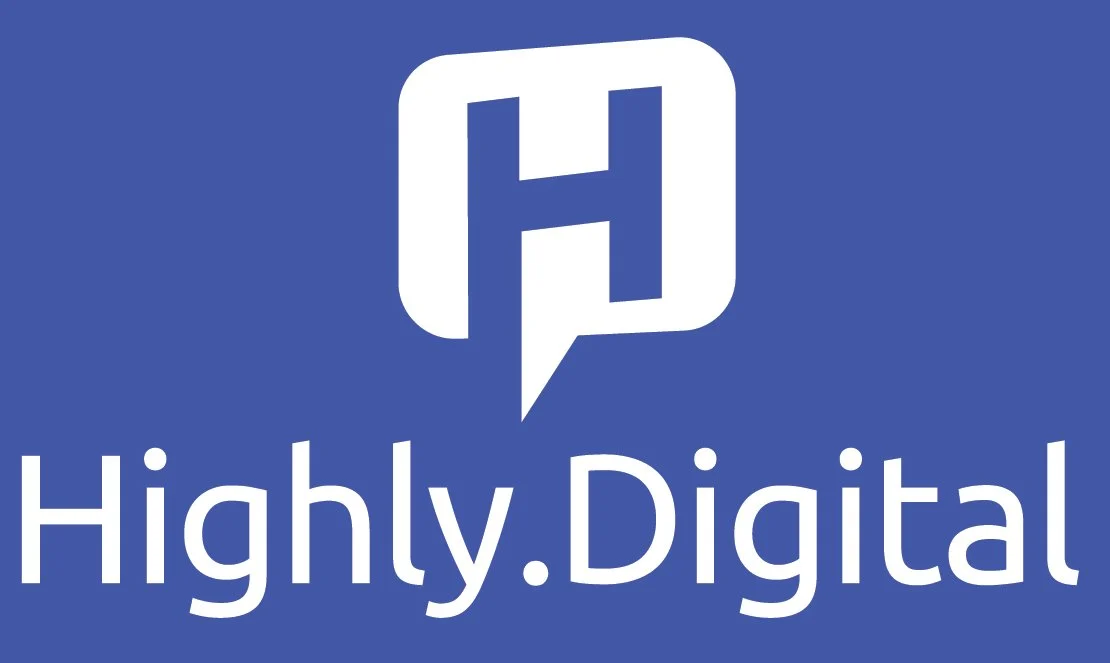Choosing between in-house and freelance content development consultants requires thoughtful consideration.
In-house teams offer brand consistency and a deep understanding of the company vision. However, they can be costly and may lack fresh perspectives.
Freelancers, on the other hand, bring diverse expertise and flexibility, adapting quickly to project needs. Yet, their quality may vary, leading to potential inconsistencies.
Ask yourself what your immediate goals are. Do you need tight control over messaging or a burst of creativity?
Each option has its merits and drawbacks. Investigate these nuances to find what aligns best with your vision and strategy.
There's much more to explore about making the right choice.
Key Takeaways
- In-house teams ensure brand alignment and consistency, while freelancers bring diverse expertise and fresh perspectives to content development.
- Consider budget constraints; freelancers offer flexibility, but in-house salaries provide predictable costs, especially during quieter periods.
- Evaluate the complexity of your content needs; in-house writers excel in brand voice, while freelancers may provide specialised knowledge for niche topics.
- Assess management capabilities; in-house teams foster quicker communication and approval processes, whereas freelancers require clear briefs and regular check-ins.
- Prioritise quality assurance; in-house teams maintain consistent output, while freelancers necessitate thorough vetting and performance evaluations to ensure standards.
Overview of Content Development Options
As businesses navigate the landscape of content development, they must weigh the benefits of in-house teams against the flexibility offered by freelance consultants. Approximately 51% of companies prefer in-house strategies, valuing better control over brand voice and objectives. This approach fosters consistency in messaging.
On the other hand, freelancers bring diverse expertise and adaptability. They can scale content production swiftly, accommodating fluctuating demands without long-term commitments. This flexibility is crucial in today's fast-paced online environment.
Effective audience engagement strategies often require fresh perspectives, something freelancers can provide. However, clear communication and detailed briefs are essential to ensure alignment with business goals.
Ultimately, understanding these content creation trends will guide businesses in making informed decisions that resonate with their target audiences.
Benefits of In-House Writers
In-house writers bring a wealth of advantages that can significantly enhance a company's content strategy. They possess a deep understanding of the company's vision and goals, ensuring consistent brand alignment. This internal knowledge fosters a seamless integration of values into every piece of content.
Team collaboration is also a considerable benefit. In-house writers can work closely with various departments, accelerating the content creation process and streamlining approvals.
Moreover, in-house teams help maintain confidentiality, protecting sensitive information within established protocols.
With fixed salaries, companies can enjoy better budget predictability compared to the variable costs associated with freelancers.
Lastly, opportunities for skill development allow in-house writers to adapt and grow, ensuring the content remains relevant in an ever-changing landscape.
Why settle for less?
Drawbacks of In-House Writers
While in-house writers offer numerous advantages, there are notable drawbacks that organisations must consider. One significant issue is resource allocation. With fixed salaries and benefits, companies may face high costs even during slow periods.
Workload fluctuations can lead to bottlenecks or, conversely, underutilisation of in-house talent.
Moreover, changing organisational priorities disrupt content schedules, causing stress and necessitating constant adjustments.
When teams lack diverse perspectives, creative stagnation often occurs, resulting in repetitive and uninspired content.
These dynamics can hinder innovation and challenge team morale.
In-house teams may struggle to adapt quickly to sudden increases in workload, impacting overall efficiency.
Is the commitment worth the potential drawbacks? It's a question worth pondering for every organisation.
Advantages of Freelance Writers
Freelance writers offer a level of flexibility that can be a game-changer for businesses.
Need to dive into content for a new product launch? Freelancers enable you to scale quickly without the overhead costs associated with full-time hires.
Moreover, their diverse expertise can bring fresh ideas to your projects, ensuring your content stands out in a crowded market.
Flexibility in Project Management
A remarkable advantage of engaging freelance writers lies in their inherent flexibility, which empowers businesses to adapt their content production to fluctuating project demands.
This adaptability is vital when navigating tight project timelines and maintaining agile workflows.
- Freelancers can be hired for short-term projects, reducing long-term financial commitments.
- They can accommodate different time zones, making it easier to meet urgent deadlines.
- Hiring multiple freelancers simultaneously allows for a higher volume of content across diverse topics.
- Their arrangements typically involve lower overhead costs, freeing up budget for other priorities.
In a world where content needs can shift overnight, freelancers can be your secret weapon.
Isn't it time to embrace the freedom they offer?
Diverse Expertise Access
How can businesses effectively tap into a wealth of specialised knowledge? Freelance writers offer remarkable freelance advantages by bringing varied expertise from different industries. This means your company can access insights that may be lacking in-house.
Imagine having writers who not only know your industry but also understand distinct audiences. They can adapt their styles to engage readers effectively, turning potential customers into loyal ones.
Freelancers also have established networks, enhancing content quality through shared industry insights. By collaborating with multiple freelancers, businesses can create tailored content that resonates deeply with target demographics.
Isn't it invigorating to know that flexibility in hiring allows you to scale projects as needed? This access to specialised knowledge can greatly enhance your content strategy.
Cost-Effective Solutions
For many businesses, embracing freelance writers can lead to significant cost savings without compromising quality. By employing freelance talent, companies can access flexible content solutions tailored to their needs.
Consider the following benefits:
- Freelance pricing is often lower than the total cost of hiring in-house staff.
- You save on expenses such as employee benefits and office space.
- Talent can be scaled up or down easily, offering content scalability that aligns with project demands.
- Short-term projects can be tackled without long-term commitments.
This approach not only enhances budget flexibility but also allows companies to invest in high-quality work from specialists when required.
Why not explore how freelancers can meet your content needs while keeping costs in check?
Disadvantages of Freelance Writers
When considering freelance writers, it's crucial to recognise potential downsides.
Quality can vary greatly, leaving you with content that may not meet your expectations.
Furthermore, freelancers often lack a deep understanding of your business, which can lead to messaging that misses the mark with your target audience.
Quality Inconsistency Challenges
While the flexibility of hiring freelance content writers can be advantageous, it often introduces significant challenges related to quality inconsistency. Freelancers may not always align with your quality benchmarks and content standards. This misalignment can lead to brand messaging that feels off or disconnected.
Consider these challenges:
- Varying skill levels result in inconsistent output.
- Over-reliance on AI tools may compromise originality.
- Quality assurance becomes difficult with multiple writers.
- Unreliable freelancers can disrupt content schedules.
Ultimately, the inconsistency in quality can affect your brand's reputation.
Have you thought about how this impacts your audience's perception? Ensuring that freelancers adhere to your standards is essential, but it can be an intimidating task.
Business Understanding Gaps
Although freelance writers offer flexibility and a diverse skill set, they often immerse themselves in understanding the intricacies of a client's business model and target audience.
This lack of in-depth knowledge can hinder effective knowledge transfer, resulting in content that falls short of brand alignment.
In fact, a Statista report in 2022 revealed that 37% of marketers struggled to ensure freelancers understood their brand's nuances.
When freelancers juggle multiple clients, their focus may wane.
Without access to internal data, they might produce generic content that lacks the depth needed for complex topics.
Is your brand's voice lost in translation?
Choosing the right content developer is vital for ensuring your message resonates clearly and effectively.
Comparing Agencies and Freelancers
In the dynamic landscape of content development, choosing between agencies and freelancers requires careful consideration of several key factors.
Freelancers often provide cost-effective solutions for short-term projects, but can you rely on their consistency? Agencies, on the other hand, typically offer scalability and specialised teams to cover broader needs.
Consider these points:
- Cost: Freelancers usually charge less, but agencies provide comprehensive services.
- Quality: Agencies maintain consistent quality control, whereas freelancer reliability can fluctuate.
- Flexibility: Freelancers allow for quick adjustments in content output, while agencies may require longer commitments.
- Management: Agencies streamline communication with dedicated resources, reducing the need for hands-on oversight.
Ultimately, your choice will depend on your specific content needs and strategic goals.
Key Criteria for Decision-Making
When deciding between in-house and freelance content development, several key criteria should guide your choice.
Have you considered your budget and the specific skills required for your projects?
The level of management and oversight you desire can make a significant difference in your content's quality and consistency, so it is essential to weigh these factors carefully.
Budget and Cost Analysis
Budgetary considerations play a pivotal role in the decision-making process between in-house and freelance content development. Understanding costs is essential for effective cost forecasting.
In-house teams incur fixed expenses, including salaries ranging from £2 to £6 lakhs in India and £35,000 to £75,000 in the USA. In contrast, freelancers typically charge between £20 to £80 per hour, offering flexibility for specific projects.
Consider these points:
- Freelancers provide cost-effective options without employee benefits.
- In-house teams may enhance brand alignment, albeit at a higher cost.
- Freelance rates can fluctuate, leading to budget unpredictability.
- Upfront costs for agencies may justify comprehensive solutions.
Ultimately, weighing immediate costs against long-term value is crucial for informed decisions.
Skillset and Expertise Needs
Determining the appropriate content development approach necessitates a careful examination of the specific skill sets and expertise required for the project.
Conducting a skill set analysis reveals that in-house teams often excel at understanding brand voice and company culture. This is essential for maintaining consistency.
Conversely, freelance consultants bring diverse expertise. They can tackle niche topics and offer fresh perspectives that infuse creativity into your content.
Have you considered the complexity of your content? Freelancers may excel in straightforward tasks, whilst in-house teams might be better suited for nuanced discussions.
Ultimately, this expertise evaluation will guide your decision. Choose wisely to ensure your content not only meets expectations but also resonates with your audience.
Management and Oversight Requirements
The choice between in-house and freelance content development also hinges on management and oversight requirements, which play a pivotal role in ensuring the content aligns with strategic goals.
In-house teams typically offer strong team dynamics and quicker approval processes. This proximity fosters seamless communication strategies.
Conversely, freelancers may require more intensive management to maintain quality and consistency.
Consider these factors:
- Proximity to team members enhances collaboration.
- Freelancers need clear briefs to grasp brand voice.
- Regular check-ins help bridge understanding gaps.
- Agencies may complicate oversight with additional project managers.
Ultimately, understanding your management capabilities can guide your decision.
Which option allows you to maintain control while effectively communicating your vision?
Budget Considerations for Content
When evaluating options for content development, financial implications play a pivotal role in decision-making. Content budgeting is essential.
In-house writers come with fixed costs, ranging from ₹2 lakhs to ₹6 lakhs in India, and £34,000 to £76,000 in the UK. This can seem intimidating. On the other hand, freelance writers charge between £20 and £80 per hour, which can be appealing for short-term projects.
Freelancers may save money initially, but have you considered the long-term value of an in-house team? They develop a consistent brand voice and deeper industry insights.
Thus, expense forecasting becomes critical. Weigh immediate costs against future benefits. Which option aligns best with your financial strategy and vision?
Choose wisely; it impacts your total operational costs.
Evaluating Quality and Consistency
How can businesses ensure quality and consistency in content development while managing the choice between in-house teams and freelancers?
Balancing these two options requires a strategic approach to quality assurance. In-house teams often provide reliable consistency due to their intimate knowledge of brand voice. However, freelancers can offer fresh perspectives when properly vetted.
To enhance content quality, consider these strategies:
- Establish clear content benchmarks and guidelines for freelancers.
- Conduct regular performance evaluations to maintain standards.
- Foster open feedback loops to align content with business goals.
- Invest time in thorough onboarding to ensure brand understanding.
Making the Right Choice
Deciding between in-house and freelance content development is a critical business choice that can greatly impact your brand's messaging and effectiveness.
In-house teams offer a deep understanding of your content strategy, ensuring consistent messaging aligned with company goals. They excel in team dynamics, facilitating quicker approvals and faster turnaround times.
On the other hand, freelancers provide flexibility and access to diverse expertise without the burden of long-term commitments.
They can be more cost-effective, especially for specific projects.
Frequently Asked Questions
How Do I Assess the Skills of Potential Freelance Consultants?
To assess the skills of potential freelance consultants, conduct a thorough portfolio analysis to review the quality and relevance of their previous work. Complement this with skill evaluation through interviews or assessments, ensuring alignment with your project requirements and objectives.
Can In-House Writers Work on Multiple Projects Simultaneously?
In-house writers can manage multiple projects simultaneously, provided effective project management techniques and appropriate workload distribution are employed. This approach ensures that deadlines are met while maintaining high-quality content across various assignments.
What Are Common Pricing Models for Freelance Content Consultants?
Common pricing models for freelance content consultants in the UK include hourly rates, project fees, retainer agreements, value-based pricing, performance incentives, and package deals, offering clients flexibility and alignment with their specific project needs and budget considerations.
How Can I Ensure Consistent Brand Voice With Freelancers?
To ensure a consistent brand voice with freelancers, establish a detailed onboarding process that includes comprehensive brand voice guidelines. This will align their output with your brand's identity and enhance overall messaging coherence across all content.
What Legal Agreements Should I Consider With Freelance Writers?
When engaging freelance writers, consider implementing confidentiality agreements to protect sensitive information and clearly define ownership rights to ensure your organisation retains full control over the created content, fostering a secure and productive working relationship.
Conclusion
When choosing between in-house and freelance content development, several factors must be considered. Each option presents its own unique advantages and disadvantages. In-house writers provide stability and familiarity with the brand, while freelancers offer versatility and fresh perspectives. Ultimately, the decision depends on specific needs, budget, and desired quality. Carefully weighing these elements can lead to a choice that enhances the content strategy. What works best today may change tomorrow. Finding the right fit is crucial for impactful content creation.



